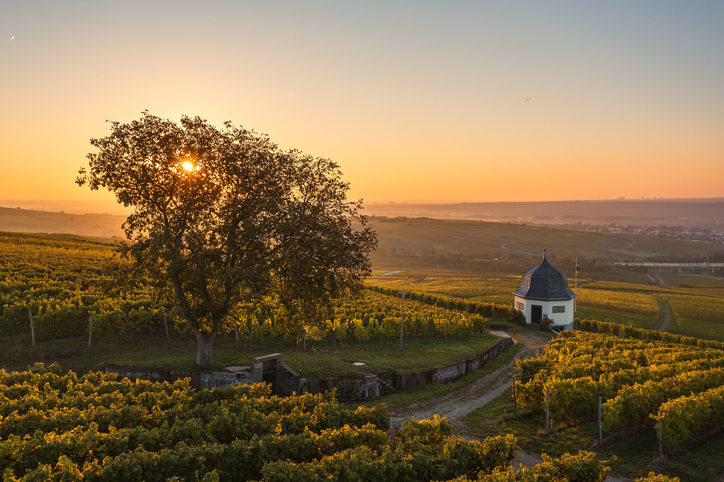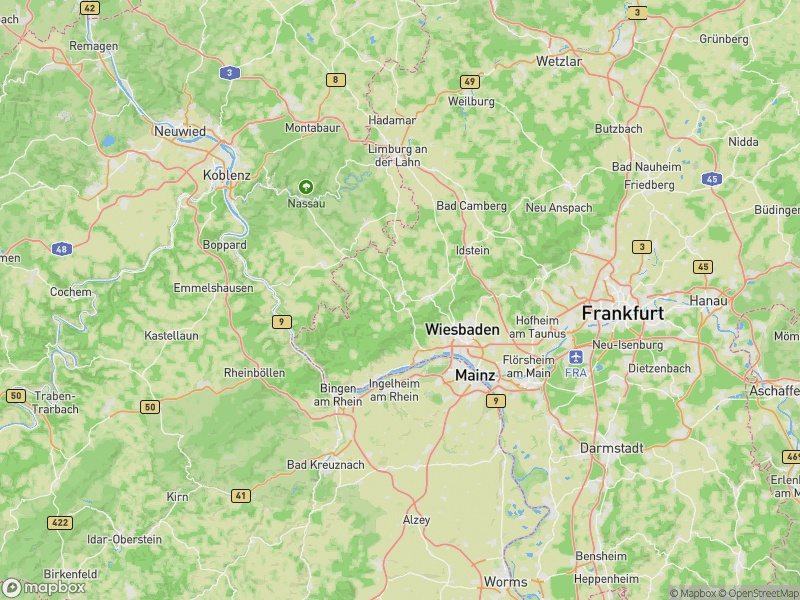Terroir of Rheingau
The Rheingau's unique climate and land are key to its famous Riesling and Spätburgunder wines. Located near the 50th parallel, it enjoys a cool climate with a long growing season. This helps develop complex flavors while keeping a good level of acidity. The Rhine River's westward bend creates a sun-catching, south-facing riverbank. This warms the vineyards and protects them from frost, while the river's reflection aids the growth of noble rot, essential for sweet wines.
The Taunus Mountains shield the vineyards from cold northern winds, enhancing the microclimate. The Rheingau's diverse soils, formed from an ancient sea, range from Devonian slate to loess and marl. These contribute to the area's unique wine styles. The combination of geological features and climate ensures that the Rheingau's wines are both strong and refined.
Notable Wineries in Rheingau
The Rheingau region is celebrated for its exceptional wine producers, blending rich history with modern innovation. Here are some standout wineries:
-
Kloster Eberbach: With nearly 900 years of winemaking, this estate is a historical gem, renowned for its Steinberg Rieslings.
-
Weingut Robert Weil: Known globally for Riesling, this Kiedrich estate emphasizes eco-friendly practices and quality.
-
Weingut Georg Breuer: A leader in dry Riesling, this Rüdesheim winery focuses on natural viticulture, crafting wines that reflect their terroir.
-
Schloss Johannisberg: A Riesling legend, this estate is the birthplace of Spätlese and produces complex, long-lasting wines.
-
Weingut Peter Jakob Kühn: Pioneers of biodynamic methods, they create vibrant wines that express their unique vineyard sites.
Sustainable Winemaking in Rheingau
The Rheingau is embracing a sustainable future in winemaking, with a growing number of its vineyards adopting organic, biodynamic, and eco-friendly practices. As global awareness about environmental impacts rises, Rheingau winemakers are committed to preserving their region's natural beauty and enhancing wine quality. These practices, from organic farming that boosts soil health to biodynamic methods that create self-sustaining ecosystems, help produce wines that truly reflect the unique terroir of the Rheingau.
Certifications like FAIR'N GREEN encourage broader sustainability efforts, emphasizing environmental protection, economic viability, and social responsibility. By reducing reliance on synthetic chemicals and enhancing biodiversity, Rheingau vintners aim to reveal the pure essence of their storied soils. This dedication to sustainability not only safeguards the environment but also ensures that Rheingau wines continue to be celebrated for their distinctive character and enduring excellence.
Wine Tourism in Rheingau
The Rheingau is an outstanding destination for wine tourism in
Germany, offering visitors a mix of history, culture, and beautiful scenery. Located close to Frankfurt International Airport, it's perfect for short trips or extended stays. Visitors can explore charming villages and vineyards via scenic routes like the Rheingauer
Riesling Route. For those who prefer active exploration, the region offers hiking and cycling paths, while Rhine River cruises provide relaxing views of the landscape. Key attractions include the sophisticated Wiesbaden, lively Rüdesheim am Rhein, and the quaint wine town of Eltville. The region is rich in cultural events, such as the Rheingauer Weinwoche, where local wine and food shine, and the Rheingau Musik Festival, offering classical concerts at historic sites. The Rheingau's culinary scene pairs perfectly with its wines, featuring regional dishes like trout and Speckkuchen, often enjoyed with the region’s renowned Rieslings.


















































